As former officials of the Obama administration head-scratchingly call for lowered U.S. voices over the organic anti-government protests in Iran — these are progressives after all; they love nothing more than a good protest — the Trump administration, most eloquently Vice President Pence, have been encouraging vocal support for the grassroots cries for Democracy in that country.
Here’s a collection of what’s coming from Obama-era officials’ Twitter accounts including former U.N. Ambassador Susan Rice, former Deputy National Security Adviser for Communications (and architect of the Iran deal) Ben Rhodes, and former Secretary of State John Kerry:
The echo-chamber line being pushed by Rice, Kerry & Rhodes on the #Iranprotests is pathetic. pic.twitter.com/H0z6XMqWGK
— Nick Short (@PoliticalShort) December 31, 2017
They seem to be collectively saying the words Lin Manuel Miranda put in the mouth of his Aaron Burr while dressing down a cocksure Alexander Hamilton in the stage play “Hamilton”:
“Talk less; smile more. Don’t let them know what you’re against or what you’re for.”
Which makes the recent tweets from VP Pence on the subject of Iran — given his own attempted dressing down by the cast of “Hamilton” just after Donald Trump’s election — all the more ironic. And all the bolder. And braver.
Talking directly to the Iranian people today. My interview with @Greta for @VOANews will air in Iran. The message from @POTUS and me is clear: Unlike the past, this time America stands with the brave Iranian protesters who are risking their lives for freedom! #IranProtests pic.twitter.com/DIXFC3Nyvw
— Vice President Mike Pence (@VP) January 3, 2018
Protesters in Iran should know there's bipartisan support in America for the freedom-loving people of Iran who continue to fight against their government’s corruption and tyranny. #IranProtests pic.twitter.com/PvOZoacOwD
— Vice President Mike Pence (@VP) January 3, 2018
We need freedom loving people everywhere to stand w/ Iranian people & against the Iranian Revolutionary Guard Corps- who are restricting basic freedoms & plundering Iran’s money to support terrorism abroad instead of helping hardworking Iranians in their own nation. #IranProtests
— Vice President Mike Pence (@VP) January 3, 2018
(2/2)…The bold and growing resistance of the Iranian people today gives hope and faith to all who struggle for freedom and against tyranny. We must not and we will not let them down. #IranProtests
— Vice President Mike Pence (@VP) January 1, 2018
As former Iranian-targets officer for the CIA Reuel Marc Gerecht, now a senior fellow at the Foundation for Defense of Democracies in Washington, DC, writes in an op-ed for The New York Times today, these protestors are deserving of the voices from those here who live under the peaceful banner of Democracy. We know that fight and we owe the protestors our support, and the concept of inalienable rights our fealty.
These brave men and women deserve America’s rhetorical and material support. They expected in it 2009 after President Obama’s Cairo speech, in which he called for human rights in the Muslim world, but it never came.
This time around, the Trump administration can do better. The president’s tweets in support of the protesters were a good start. Washington should also let loose a tsunami of sanctions against the Revolutionary Guards, the linchpin of Iran’s dictatorship. Policy-wise, that would be a good place to start.
Gerecht, in trying to untangle why the American left, so given as it is to protest literally anything they believe might be running afoul of a guaranteed right (even to the extent they have to make up “rights” to things like abortion in order to protest that those rights are being infringed upon), would urge silence regarding Iranian protests concludes that progressives are little more than simply pessimistic about America. And, furthermore, that they stubbornly cling to the notion that the Iran deal — even as it’s becoming clear that the money Obama handed over during that bargain never actually made it to the people of that country — will somehow work if we just stay out of it.
This reflexive belief that the United States is more apt to do wrong than right in Iran is today reinforced by a palpable anxiety on the American left that any serious support for the pro-democracy demonstrators could slide into new sanctions that could threaten Mr. Obama’s nuclear deal. To put it another way, a (temporary) suspension of the clerical regime’s nuclear ambitions is seen as more important than the possibility that democratic dissidents might win their struggle against Ayatollah Ali Khamenei and his religious dictatorship.
Fear for the survival of the nuclear deal dovetails with an entirely mistaken idea about Iran that has driven much American and European policy since the 1990s: that the Islamic Republic can evolve from theocracy to a more traditional, nonthreatening authoritarian regime or even to democracy. This hope reinforces the view that Washington needs to keep its distance from dissidents or risk compromising their position in Iranian society. “Authentic” politically viable Iranians are thus anti-American since they have to negotiate with and cajole the hard-liners into accepting reform.
It’s a fantastic example of cognitive dissonance to simultaneously be so pessimistic about the U.S.’s ability to help (remember: they salivate over the thought of bettering society through protests), and yet so optimistic that Iran can, left to their own devices, shed their theocratic tendencies after almost 40 years of embracing them.
So fantastic that, I think, the more definitive goal in shushing those who would support the Iranian anti-government protestors is something much simpler: rather than protecting the Iran deal per se (it’s worthless anyway and they know it), they seek to protect Obama, because that deal is the center star in his legacy crown.
Same old progressives. A cult of personality equally adept at dressing up as human rights campaign as it is shuffling off that costume to protect the king (or queen — see Hillary Clinton).
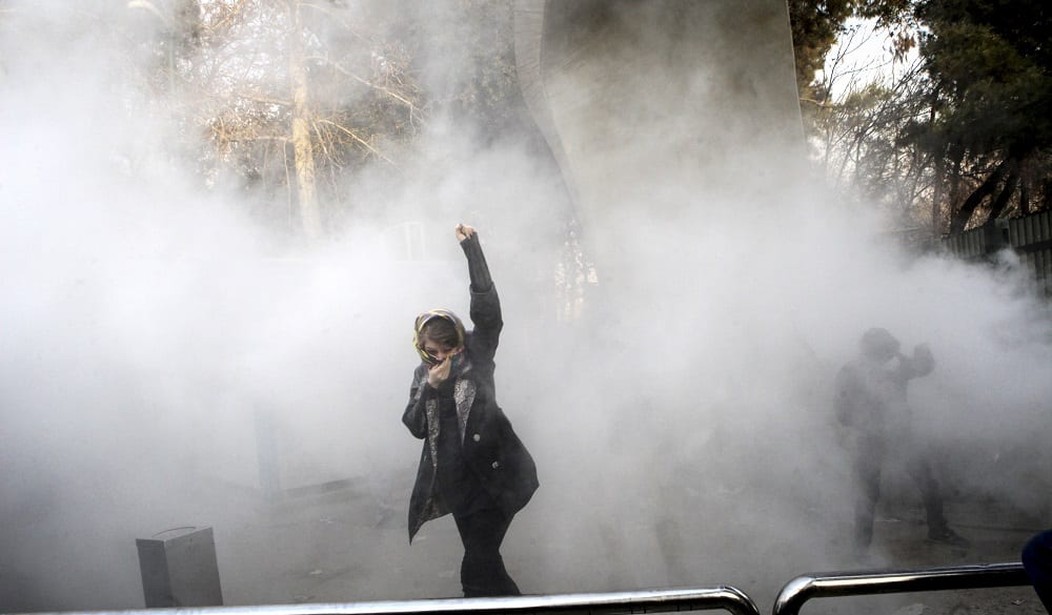
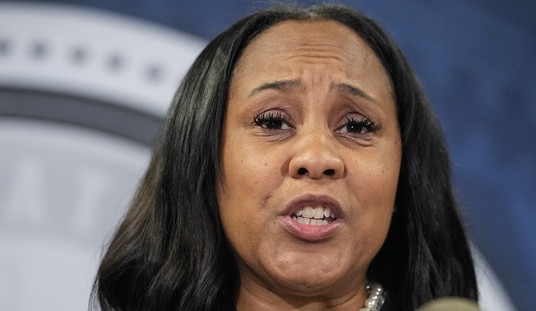
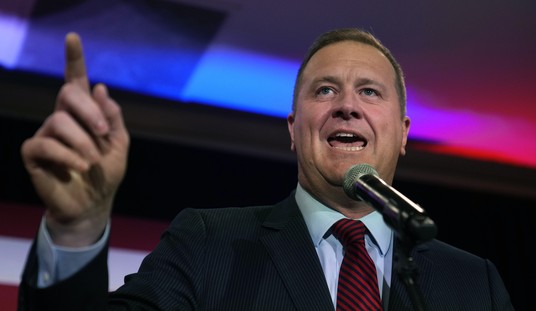
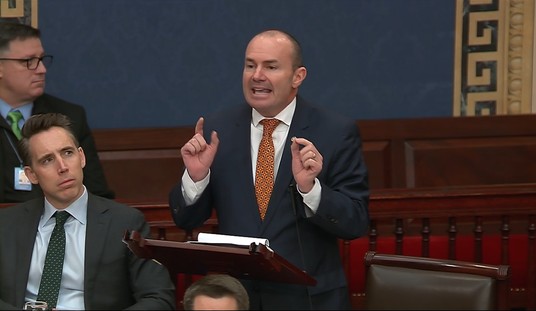


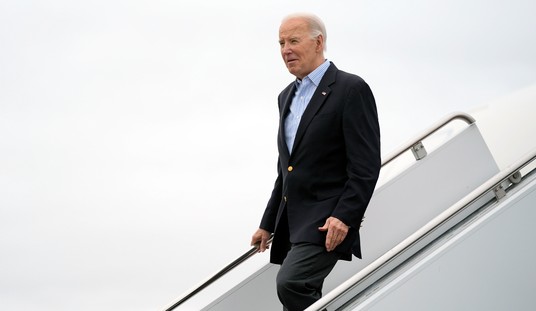
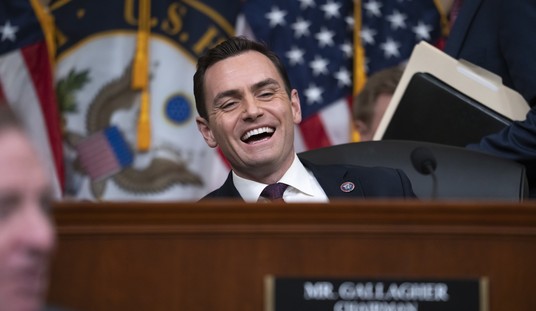
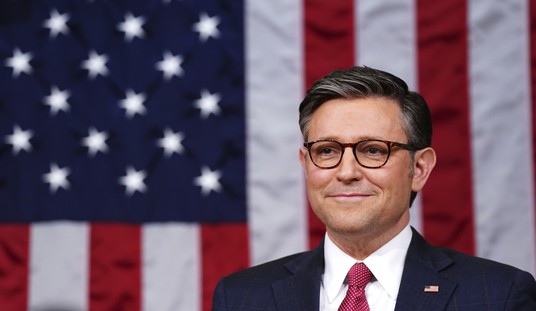
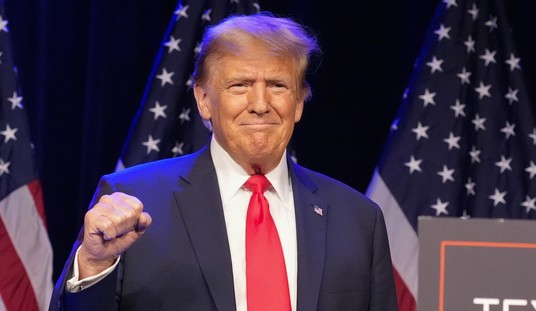
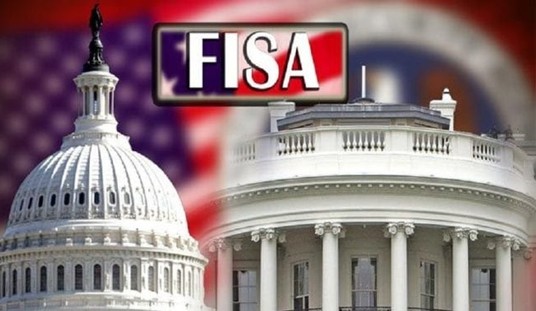
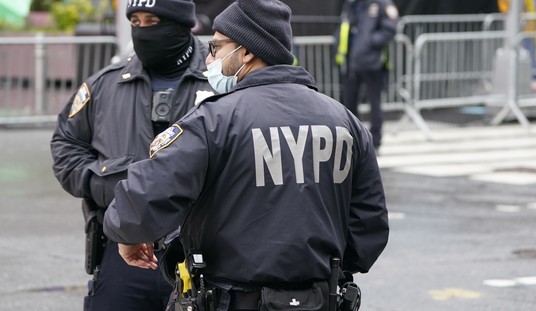


Join the conversation as a VIP Member